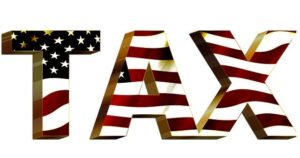Navigating Tax Paperwork: The Essence of Certified Translations for UK Tax Compliance
Navigating the complexities of tax obligations can be a daunting task for individuals and businesses alike, especially when financial matters are documented in languages other than English. In the UK, tax paperwork that is not in English or Welsh mu…….

Navigating the complexities of tax obligations can be a daunting task for individuals and businesses alike, especially when financial matters are documented in languages other than English. In the UK, tax paperwork that is not in English or Welsh must undergo a certified translation process to comply with Her Majesty’s Revenue and Customs (HMRC) standards. This article delves into the critical role of certified translations for UK tax paperwork, outlining the necessity, legal framework, and steps for obtaining accurate translations by accredited translation services in the UK. Whether you’re dealing with income tax returns, corporate tax statements, or VAT records, understanding how to navigate language barriers is essential for successful tax submission. We will guide you through the process of identifying reliable services, exploring key types of tax documents that require professional translation, and providing case studies where certified translations have led to smooth tax submissions. This comprehensive overview ensures that your tax paperwork meets all legal requirements, facilitating accurate tax assessments and payments.
- Understanding the Necessity of Certified Translations for UK Tax Paperwork
- The Role of Accredited Translation Services in Tax Documentation
- Key Types of Tax Documents Requiring Professional Translation in the UK
- Criteria for a Translation to be Considered Certified in the UK Context
- Navigating Language Barriers: A Guide to Translating Tax Returns and Financial Statements
- The Legal Framework Governing Certified Translations of Tax Paperwork in the UK
- How to Identify Reliable and Accredited Translation Services for Tax Documents
- The Process and Steps Involved in Obtaining a Certified Translation for HMRC Purposes
- Case Studies: Successful Submission of Foreign Language Tax Documents with Certified Translations in the UK
Understanding the Necessity of Certified Translations for UK Tax Paperwork

When foreign individuals or businesses operate within the UK, it is imperative to ensure that all tax documents comply with Her Majesty’s Revenue and Customs (HMRC) standards. Non-UK residents are often required to provide translations of their tax documents when submitting returns or financial statements to the UK tax authorities. In such cases, tax documents UK translation services play a pivotal role in facilitating accurate reporting and compliance with legal requirements. A mere interpretation may fall short, as HMRC demands certified translations that attest to the accuracy and authenticity of the translated content. These translations must be performed by professional translators who are accredited to provide certified translations, ensuring that the translated documents hold the same legal weight as their original counterparts. This certification typically includes a statement from the translator affirming the translation’s exactness, along with their signature and official stamp or embossed seal. By leveraging the expertise of reputable tax documents UK translation services, individuals and entities can navigate the complexities of UK tax regulations with confidence, avoiding potential penalties for non-compliance and ensuring that all financial obligations are met to the satisfaction of the UK tax authorities.
The Role of Accredited Translation Services in Tax Documentation

When navigating the complexities of UK tax documentation, accuracy and compliance are paramount. For non-UK residents or individuals whose primary language is not English, the challenge intensifies due to the intricate nature of tax forms and regulations. This is where the expertise of accredited translation services becomes indispensable. Proficient UK translation services specialise in converting tax documents into accurate, clear, and understandable translations, ensuring that all numerical data and legal terminology are correctly represented in the target language. These services not only facilitate better communication between taxpayers and HM Revenue & Customs (HMRC) but also eliminate potential errors that could arise from automated translation tools or misinterpretation of complex tax terms. By providing meticulous translations, these agencies ensure that foreign tax documents meet the specific requirements of UK tax law, thereby safeguarding against penalties and misunderstandings that could arise from language barriers. This level of precision is critical for individuals and businesses alike who are obliged to submit tax documents in English, thus underscoring the vital role of professional translation services in this context.
Key Types of Tax Documents Requiring Professional Translation in the UK

navigating the complexities of tax compliance often necessitates the professional translation of key documents for non-UK residents or businesses dealing with UK tax authorities. Professional translators with expertise in tax terminology and legal language are indispensable when it comes to accurately conveying information from tax documents such as Self Assessment forms, Corporation Tax returns, and Value Added Tax (VAT) registrations. These documents require precision to ensure that financial details and tax obligations are correctly interpreted and understood by HM Revenue & Customs (HMRC). For instance, annual accounts and company reports may need to be translated for subsidiaries or individual taxpayers who operate across different countries, including the UK. In such cases, certified translations are crucial, as they must come with a statement of accuracy and be accepted by HMRC. Translators must adhere to the Official Journal of the European Union’s standards for certified translations to ensure that these documents meet legal and regulatory requirements, facilitating seamless interaction with UK tax systems and avoiding any potential penalties due to miscommunication or mistranslation. UK translation services specializing in this field provide assurance that all nuances and details are accurately represented in the target language, which is paramount for compliance and integrity in financial reporting.
Criteria for a Translation to be Considered Certified in the UK Context

When dealing with tax documents in the UK, it is imperative that any translated content accurately reflects the original text to comply with Her Majesty’s Revenue and Customs (HMRC) regulations. A translation is considered certified when it meets stringent criteria set forth by the UK’s legal and translatory standards. Firstly, the translation must be carried out by a professional translator who is either a member of a relevant professional body, such as the Institute of Translation and Interpreting (ITI), or the Chartered Institute of Linguists (CIOL). This ensures that the translator possesses the necessary expertise and adheres to a code of professional conduct.
Furthermore, the certified translation must be accompanied by a statement of accuracy signed and dated by the translator. This declaration asserts that the translation is complete and accurate, and that the translator holds liability for any errors or omissions. Additionally, the translation should include a visible stamp or seal from the translator or the translation service provider, confirming the authenticity of the translation. UK translation services that offer certified translations are familiar with the intricacies of tax terminology and legal requirements, ensuring that tax documents such as annual returns, VAT records, and P60s are translated to a standard that is acceptable by HMRC. Engaging such services is crucial for individuals and businesses alike to avoid issues with tax submissions and ensure compliance with UK legal requirements.
Navigating Language Barriers: A Guide to Translating Tax Returns and Financial Statements

Navigating the complexities of tax documents in the UK can be challenging for individuals whose primary language is not English. Accurate translation of tax returns and financial statements is crucial to ensure that the information presented to HM Revenue & Customs (HMRC) is clear, precise, and compliant with UK regulations. Certified translations by professional UK translation services are essential to overcome language barriers. These experts not only translate text but also interpret the context to align with UK accounting standards, thereby reducing the risk of errors that could lead to complications or penalties. When submitting tax documents to HMRC, it is imperative that all financial information is conveyed accurately, avoiding any misinterpretation that could arise from language discrepancies. Utilising the services of a certified translator with knowledge of both the source and target languages, as well as familiarity with UK tax law, ensures that your tax documents are fully understood and processed correctly by the authorities. This meticulous approach to translation can save time, eliminate confusion, and contribute to the accurate calculation of taxes due.
The Legal Framework Governing Certified Translations of Tax Paperwork in the UK

When managing tax documents in the UK, it is imperative for individuals and businesses with non-English records to procure certified translations to comply with Her Majesty’s Revenue and Customs (HMRC) standards. The Legal Framework Governing Certified Translations of Tax Paperwork in the UK is underpinned by the European Union’s Directive on the Recognition of Qualifications, which applies to EU countries and the UK’s own legislation post-Brexit. HMRC requires that all foreign documents are accurately translated into English and certified by a professional translator who is authorised to provide such services. This ensures the integrity and authenticity of the tax documents for proper assessment and compliance. UK translation services play a crucial role in this process, offering certified translations that include a statement of accuracy and a signed certification from the translator. These translations are then accepted by HMRC as part of the submission for tax returns, VAT registration, and other tax-related processes, facilitating smooth cross-border transactions and financial reporting obligations within the UK legal framework.
How to Identify Reliable and Accredited Translation Services for Tax Documents

When the necessity arises to present tax documents in the UK that were originally drafted in another language, the accuracy and credibility of the translation are paramount. Reliable and accredited translation services for tax documents are essential to ensure compliance with Her Majesty Revenue & Customs (HMRC) standards. To identify such services, look for translators who specialize in legal and financial document translation, as this expertise is crucial for navigating the complexities of tax terminology and regulations. Professional translators should be members of recognized institutions like the Institute of Translation & Interpreting (ITI), the Chartered Institute of Linguists (CIOL), or the Association of Translation Companies (ATC). They must also possess a robust track record of working with UK tax documents, demonstrating an understanding of both the language nuances and the legal requirements. Verifying their credentials and reading client testimonials can provide insight into their reliability and accuracy. Additionally, accredited translation services should offer a certificate of accuracy alongside the translated document, which serves as proof that the translation is complete, precise, and faithful to the original content. This documentation is often required by HMRC for tax-related submissions, making the choice of a certified translation service a critical step in fulfilling your legal obligations.
The Process and Steps Involved in Obtaining a Certified Translation for HMRC Purposes

Navigating the requirements for tax documents in the UK often necessitates professional translation services to ensure accuracy and compliance with HMRC (Her Majesty’s Revenue and Customs) standards. The process of obtaining a certified translation for UK tax paperwork begins with selecting a reputable translation service that specialises in legal and financial document translations. These services are staffed by qualified translators who are adept at converting documents from foreign languages to English, or vice versa, while adhering to the stringent guidelines set forth by HMRC.
Once a translation agency is engaged, the client must provide the original tax documents. The translation agency then assigns a professional translator with expertise in both the source and target languages, as well as knowledge of UK tax regulations. The translator meticulously converts the content, ensuring that every term, figure, and nuance is accurately represented in the target language. Upon completion, the translated document undergoes a quality assurance process to verify its accuracy and completeness. Following this, the translator affixes a certified statement or stamp on the translation, attesting to its authenticity and confirming that it is a true and accurate rendition of the original document. This certification is essential for HMRC purposes, as it confirms that the translation meets their legal requirements. The certified translation is then ready to be submitted to HMRC alongside the tax documents, facilitating smooth processing and compliance with UK tax laws.
Case Studies: Successful Submission of Foreign Language Tax Documents with Certified Translations in the UK

navigate the complexities of UK tax paperwork, businesses and individuals alike often require professional translation services to submit foreign language tax documents. A prime example is the case of a multinational corporation with subsidiaries in Spain. The company faced the challenge of presenting annual financial reports in English to the UK tax authorities. By engaging a reputable UK translation service specialising in tax documents, the firm successfully translated and certified the necessary financial statements and supporting documentation. This certification confirmed the accuracy and reliability of the translations, allowing for seamless integration into the UK’s tax system.
Similarly, an individual from France relocated to the UK and was obliged to submit property income tax returns in English. The returns included rental income statements and receipts primarily in French. A professional translation service with expertise in UK tax documents for non-UK residents was enlisted. The service provided not only linguistically accurate translations but also ensured each document bore the necessary certified translation stamp, as required by HM Revenue & Customs (HMRC). This meticulous attention to detail and adherence to regulatory standards facilitated the individual’s compliance with UK tax laws, leading to a successful submission and avoidance of potential penalties. Both cases underscore the importance of utilizing professional UK translation services for accurate and certified translations of tax documents, ensuring legal and fiscal compliance in the UK.







